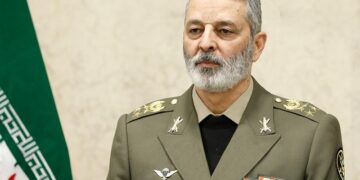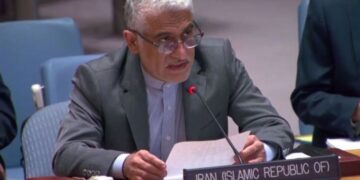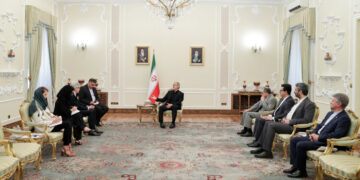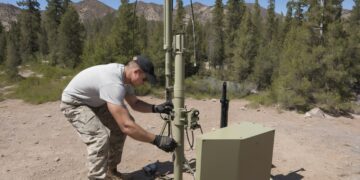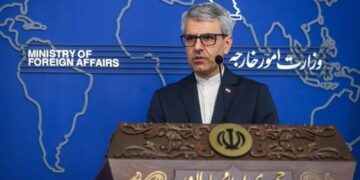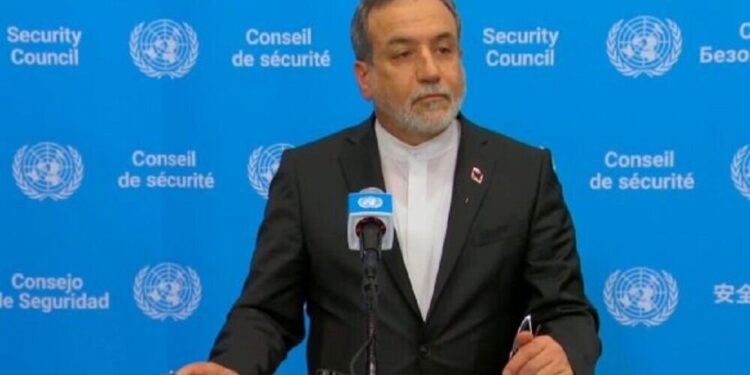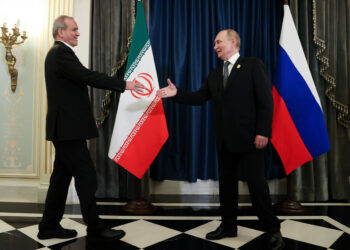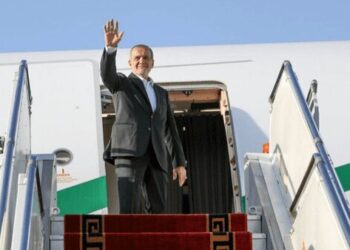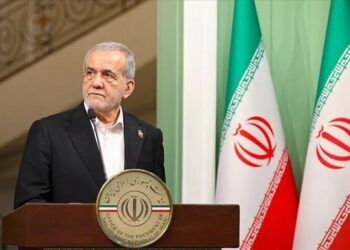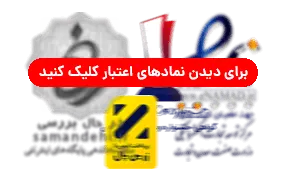Europe’s role in Iran’s nuclear program diminished: Foreign Minister Araghchi
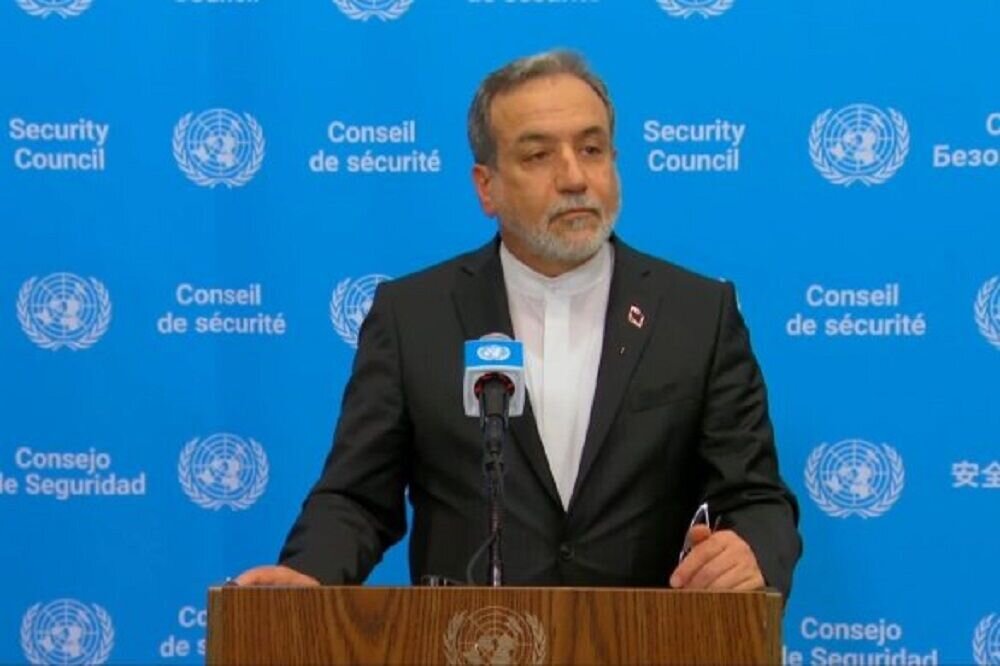
Following a speech delivered to ambassadors, chargés d’affaires, and heads of foreign and international missions based in Tehran, Araghchi responded to a question from IRNA regarding the future of Iran’s cooperation with the European troika– Britain, France, and Germany.
It has been proven that there is no solution for Iran’s nuclear program other than a diplomatic and negotiated one, he said.
This reality, he said, had been tested and confirmed multiple times in recent years.
Iran has been threatened with military action on several occasions, and even at times those threats were attempted, but it became clear that the Iranian issue could not be resolved through military means, Araghchi noted.
The three European countries believed they had acquired a new pressure tool and assumed that by threatening to implement it, they could exert influence over Iran, the top diplomat said.
However, after activating it, they witnessed the outcome: no change occurred, no problem was resolved, and the only result was the weakening of the diplomatic process, he noted.
European countries, Araghchi said, had repeatedly threatened to activate the so-called snapback mechanism, and Iran’s consistent response had been that just as military action failed to provide a final solution, the mechanism would not serve that purpose either.
He argued that such a move would not help resolve the issue but would instead make the diplomatic process more difficult and complex.
The foreign minister added that diplomacy never ceases and always remains present.
But the question is: under what conditions, with which parties, and based on what balance will it continue? he said.
He noted that the current conditions are entirely different from the past. The three European countries have clearly weakened their role in the diplomatic process.
It is not justifiable to hold negotiations with the European parties, he underlined.
He concluded that in any future negotiated solution, Europe’s role would be significantly less than before.
Cairo agreement no longer basis for cooperation with IAEA
In response to a question about the status of Iran’s agreement with the International Atomic Energy Agency (IAEA), Araghchi stated that Iran had established a new framework for cooperation with the agency.
He explained that this change was necessary due to recent developments, particularly the attack on Iran’s nuclear facilities, which made continued cooperation under the previous framework unfeasible.
He emphasized that the security threats and safety concerns arising from the attack necessitated a redefinition of the cooperation framework.
Also, he mentioned that the IAEA had agreed to this new approach, leading to several rounds of negotiations and ultimately resulting in the Cairo agreement.
The foreign minister noted that, under the current circumstances, the Cairo agreement could no longer serve as a viable basis for cooperation with the agency.
Araghchi said that Iran would soon announce its new decision regarding its relation with the IAEA.
He reiterated that the activation of snapback had fundamentally altered the conditions, just as the earlier military attack had altered the situation.
He said that new decisions must be made and that the Cairo agreement was now ineffective and irrelevant to the current circumstances.
Tehran had taken all necessary steps to demonstrate the peaceful nature of its nuclear program and its goodwill in reaching a negotiated and mutually beneficial solution that also builds trust, he said.
Iran had entered cooperation with the IAEA, engaged in diplomatic talks and consultations, and presented constructive, fair, and balanced proposals.
He argued that Western countries now have no excuse to accuse Iran of avoiding negotiations or failing to cooperate with the agency.
He said that there is no valid justification for implementing the snapback mechanism.
As in the previous instance when a military attack was launched without justification while Iran was engaged in negotiations, the legitimacy of Iran’s position has once again become clear, he said.
Iran’s lawful and reasonable stance is now evident to all countries, said Araghchi.
The Islamic Republic had demonstrated its goodwill in practice and proven that it is not seeking escalation, conflict, or nuclear weapons, but rather pursuing its rights, the official said, noting that Iran is prepared for any solution that can build trust.
Araghchi noted that during the previous military attack, over 120 countries and nearly all international organizations condemned the aggression, expressed support for Iran, and declared solidarity.
He said that once again, Iran has proved to be a wise, reasonable, and intelligent player in the international arena—one that does not let go of its rights but remains ready for any solution that could build trust on Iran’s nuclear program.
No topic other than nuclear issue discussed in exchanges with US
In response to a question regarding the four conditions reportedly set by the US for negotiations with Iran, Araghchi said that none of the conditions mentioned in some media outlets had been officially communicated to Tehran.
He said that in recent months, Iran’s talks with the US had been limited to the nuclear issue, conducted indirectly through messages and intermediaries.
The top diplomat underlined that no other topic had been discussed in these exchanges.
Araghchi added that Iran’s proposals in these diplomatic exchanges had been entirely clear, and he believed that if those proposals had been considered and the opportunity for diplomacy had not been lost or restricted in this manner, reaching a negotiated and diplomatic solution would not have been out of reach.
He noted that this possibility still exists, provided the other side enters talks with goodwill and aims to secure mutual interests.
However, he said that the fundamental difference between the current situation and the past is the addition of a new element to the equation — the activation of the Snapback Mechanism at the UN Security Council.
He said this move would make future negotiations more difficult and complex.
Araghchi said that the Ministry of Foreign Affairs would continue its efforts to advance diplomacy.
He said that, from Iran’s perspective, the role of diplomacy can never be eliminated or ignored.
Iran remains committed to this path, Araghchi said, noting that the conditions have changed—both following the recent military attack and the activation of the so-called snapback mechanism by the three European countries.
As a result, he said, future negotiations will be fundamentally different from those of the past.
Iran sought fair, balanced negotiated solution
The Foreign Minister said that it is necessary to explain the consequences and implications of the decision that was made, so that everyone understands the conditions created by Western countries in the UN Security Council and the potential risks that may follow, including legal and political challenges that will arise as a result of this decision.
The Islamic Republic has made efforts to reach a fair and balanced negotiated solution, said Araghchi.
However, he said it was the Western countries that responded negatively to the efforts due to their excessive and unreasonable demands.
Europe’s role in Iran’s nuclear program diminished: Foreign Minister Araghchi
Fibonacci Ai



